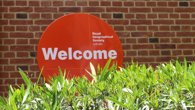
Wiley Research Fellowships: Felix de Montety
 In 2022-23 we awarded three Wiley Digital Archive Research Fellowships, enabling the Research Fellows to access and undertake research using the hundreds of thousands of items from our historic Collections that have been digitised in the Wiley Digital Archive.
In 2022-23 we awarded three Wiley Digital Archive Research Fellowships, enabling the Research Fellows to access and undertake research using the hundreds of thousands of items from our historic Collections that have been digitised in the Wiley Digital Archive.
We spokeÌýto each of our Research Fellows to find out more about their projects, starting with Felix de Montety from the Université Grenoble Alpes, France. Felix is researching mountain cartography and place-name exonymy – the use of a name given to a place by foreigners. We caught up with Felix to hear about his research, why he applied for the Fellowship and what he’s found so far in the digital archives.
Ìý
How did you come to be interested in your current research?
I started wandering around in the mountains with my family when I was a child, and I later developed a strong interest for maps as well as for the geography, history and languages of Asia’s mountains and what we now call the Silk Road. That led me to spend some time in Central Asia and start a PhD in geography at the University of Nottingham, where I had the chance to work with wonderful scholars such as Mike Heffernan, Georgina Endfield, Steve Legg and Ben Thorpe. I now live in Grenoble, in the middle of the French Alps, where I have been working on linguistic geography and place-naming processes in mountain areas for the past two years.
What made you apply for a WDA Research Fellowship?
All in all, I must have spent months in the archives of geographical societies across Europe, mainly from 2013 to 2019, and when it became more difficult to travel while access to online collections grew easier, I got accustomed to browsing through online archives from Germany, France, Russia and Kyrgyzstan. I was keen to gain access to the archives at the Society and, since I didn’t have the time and opportunity to conduct extensive fieldwork in London, a WDA Research Fellowship was a good alternative option.
How does your project sit within your wider research interests?
This project is part of a long-term project on mountain names and the languages of modern mountaineering and surveying and ethnography, for which I plan to keep on conducting fieldwork in France, Switzerland, Italy and Kyrgyzstan in the years to come.
What are you hoping to find in the digital archives?
Most of my initial findings since I got access to the online collection in February have been related to the cartography of Mount Everest and Nepal, as well as with the question of linguistic knowledge among British mountaineers in the 20th century. The Society’s material is always fascinatingly rich and it encompasses such a wide array of themes that I know I will find very interesting documents in the weeks to come, notably on the cartography of the Himalayas and logistical aspects of the expeditions to Mount Everest.
Ìý
Ìý
